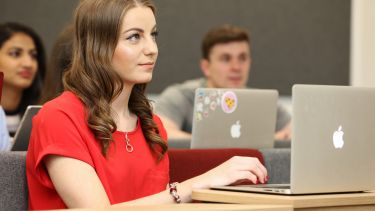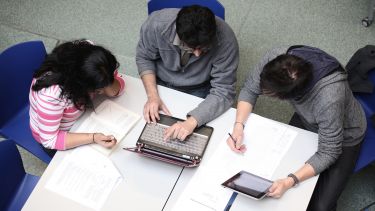Lectures and seminars
Lectures and seminars are likely to be a core part of your programme - our guidance suggests how to prepare and get the most out of these learning environments and engage with your learning.
Skills development opportunities
Academic Skills (301)
Attend our workshops, and 1:1 appointments for study skills, maths and statistics.
English Language Teaching Centre (ELTC)
Explore our short courses for listening, speaking and pronunciation, faculty resources and 1:1s to develop your lecture, seminar and communication skills.
University Library
Explore our workshops, tutorials and guides to develop your research skills, critical thinking, and digital creativity. Access subject specific information resources and specialist support.
Get help
Study Skills A to Z
Use our A to Z list of pages to quickly find the information you need.
Can't find what you're looking for?
Use this form to suggest a new topic, or an update to an existing page.
Contact us
Get in touch with us for any queries about how we can support your learning.




